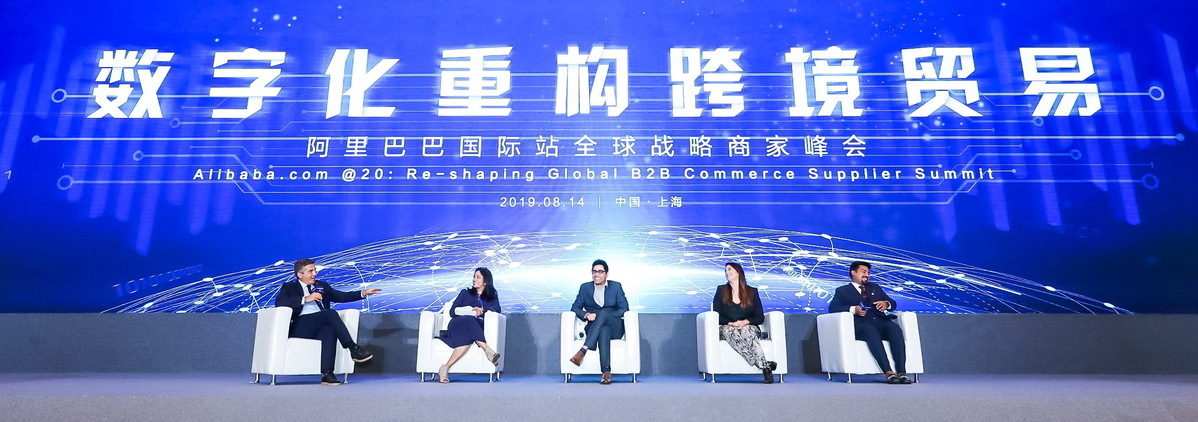
Search history
Clear allSearch by image
XDrag and drop an image here or upload an image
Max 5MB per image
UploadSign In | Join

Search history
Clear allSearch by image
XDrag and drop an image here or upload an image
Max 5MB per image
UploadSign In | Join
X Email Mobile

Guests take part in a discussion at a global suppliers summit of Alibaba Group Holding Ltd in Shanghai on Wednesday. [Photo by Niu Jing/For China Daily]
Alibaba Group Holding Ltd is upgrading its wholesale business by adding a new sourcing channel to better facilitate cross-border trade, particularly for small- and medium-sized enterprises.
The e-commerce giant announced on Wednesday it is adding a new channel for buyers seeking standardized goods rather than tailor-made products on Alibaba.com, the company's business-to-business site.
The new avenue, in addition to a parallel channel for customized offerings, will distinguish different buyers by identifying their unique needs, thus enhancing their chances of procurement.
Speaking at a global suppliers summit in Shanghai, Alibaba.com Co-General Manager Zhang Kuo said the move complements the existing supply channels and offers global SME buyers more choices and greater variety.
"This is designed on top of the existing OEM channel, adding a new piece to the fragmented, high-frequency, and personalized procurement ordering puzzle. This is a major trend we need to capitalize on," Zhang said.
Backed by intelligent algorithms, Alibaba.com's digital trade platform allows customized displays of offerings to buyers, hence adding to the chances of procurement.
According to company figures, Alibaba.com serves 150 million registered users around the world, by giving suppliers the tools needed to reach a global audience, and helping buyers target products and suppliers across 200 economies in an efficient manner.
Last year, the site announced the launch of a "one-stop" digitalization solution for Chinese exporters, helping sellers with matchmaking, branding, payment and escrow services, logistics and the cross-border supply chain.
Under the initiative, sellers can leverage Alibaba's extensive database to work out the latest market trends and customize products for overseas buyers. The one-stop shop also allows for interactive visual shopping online through mobile devices.
Ant Financial, Alibaba's financial arm, supports transactions in 22 currencies and can settle local payment in 56 economies, said Cheng Li, chief operating officer of Ant's international business.
Alibaba.com is also seeking to launch a special digital zone featuring Yiwu, China's hub for exports of small merchandise, in a bid to smooth cross-border transactions for millions of SMEs.
The new channel is set to satisfy the needs for standardized goods from merchants in Yiwu and other small commodity export hubs, said Yu Yong, vice-president of Alibaba and co-general manager of Alibaba.com.
This is a substantial part of putting into practice and boosting the electronic World Trade Platform, an initiative Alibaba proposed in 2016 to facilitate trade for global SMEs through digitalization.
Yu said Yiwu will be among the 10 key industrial hubs that Alibaba.com plans to nurture in a bid to create synergies and co-found international industrial zones with the United States, Italy, Vietnam and India.
In June, Alibaba signed an agreement on eWTP with the municipal government of Yiwu to digitize trade infrastructure and develop additional trade flows for the city. The venture also plans to work on innovations in trade finance and establish a smart logistics hub there.
"Using the digital tool, we noticed surging interest from the United States in bathroom cabinets that are longer and narrower than our existing models," said Ding Gefeng, general manager of Hangzhou Home Dee Sanitary Ware Co Ltd. "That has prompted us to devise new models to secure new orders."
TOP